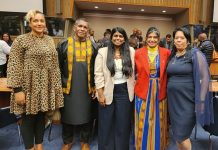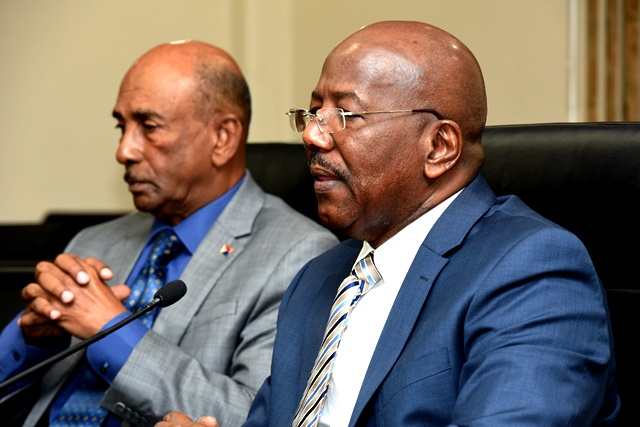PHILIPSBURG – Prime Minister William Marlin has disclosed that amendments to the draft law to change the constitution pertaining to “ship jumping,” and whether or not St. Maarten students overseas should vote, will appear before Parliament for debate and subsequent approval.
However, he admitted that even if Parliament approved these changes in time for the September 26 elections, there is no certainty it will take effect, as it still has to be approved by the Kingdom Council of Ministers. These changes pertain to recommendations to mitigate the effects of ship jumping, and whether or not to allow St. Maarten students studying overseas to vote.
To get either amendments approved by Parliament, Prime Minister Marlin noted that government would need all MPs to vote in favour, and as well as get the support of two additional opposition MPs.
“Whether we will have a voting now before election is yet to be seen…even if the coalition votes for it and we do not get two votes from the opposition minimum to go along with it, it would not be accepted,” Marlin said.
He lamented the involvement of the Kingdom Council of Ministers in a decision that ultimately affects St. Maarten. “This is one of the consequences of being in the constitutional makeup and framework we are in,” he stated. “One of the concerns I have had, the Dutch should not judge St. Maarten wearing Dutch glasses…you have to judge St. Maarten in whatever it is doing or wants to do based on its merits. St. Maarten is not Holland, St. Maarten is not Europe, St. Maarten is a Caribbean country,” he added.
He explained the rationale behind the amendments regarding ship jumping. “You are elected to a party and as long as you don’t leave, you are a member of that party, you’re a member of that faction,” Prime Minister Marlin said.
Regarding the issue of the St. Maarten students, the Prime Minister said even though these students are away, they are keeping abreast of developments back home and should have a say in the affairs of their country.
“For us it is so important because students are actually living in St. Maarten, but because of their studies…are forced to write out of St. Maarten in order to register in Holland,” Marlin said.
“Their future for 90% of them isn’t in Holland. Their future is here and they want to be part of the process,” he explained.





























